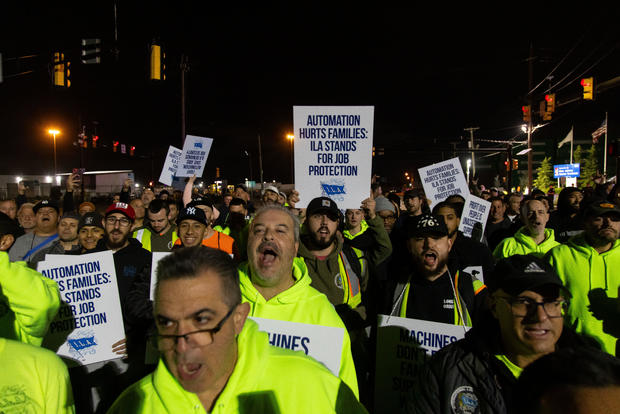Thousands of dockworkers, under the aegis of the International Longshoremen’s Association (ILA), embarked on strike against the nation’s East and Gulf Coast ports on Monday night following the expiration of their contract agreement.
Experts have revealed that the strike action has the propensity to choke off imports and exports across 36 ports stretching from Maine to Texas, causing severe disruptions to the country’s supply chain as never seen for more than a decade.
The strike has ceased the inflow and outflow of various goods and commodities in almost all the cargo ports from Maine to Texas. This implies that many factories in the United States will either cease operation or have shortages as the port-striking workers abruptly cut off the raw materials and goods needed to keep them running afloat.
In a statement concerning the strike, the International Longshoremen’s Association’s president, Harold Daggett, noted that the Union would not back out until their demands were fully met, insisting that the strike would continue as long as possible. He said, “We are prepared to fight as long as necessary, to stay out on strike for whatever period of time it takes, to get the wages and protections against automation our ILA members deserve.”
The strike is occasioned by the wide gap that exists between the International Longshoremen’s Association (ILA) and the United States Maritime Alliance, commonly known by the acronym USMX. The maritime alliance represents the major foreign-owned shipping lines, terminal operators, and port authorities, while the ILA represents the workers who work to ensure the day-to-day operation of port activities that, in turn, generate massive revenue for the authorities.
The ILA is demanding an increase in workers’ wages and the total eradication of automated cranes, gates, and container-moving trucks when unloading or loading freight, which they allege have the capacity to replace several workers and cause them to lose their jobs. They also hold the opinion that the workers are not commensurately compensated for their work. “USMX brought on this strike when they decided to hold firm to foreign-owned ocean carriers earning billion-dollar profits at United States ports, but not compensate the American ILA longshore workers who perform the labour that brings them their wealth,” the ILA president added in the statement.




